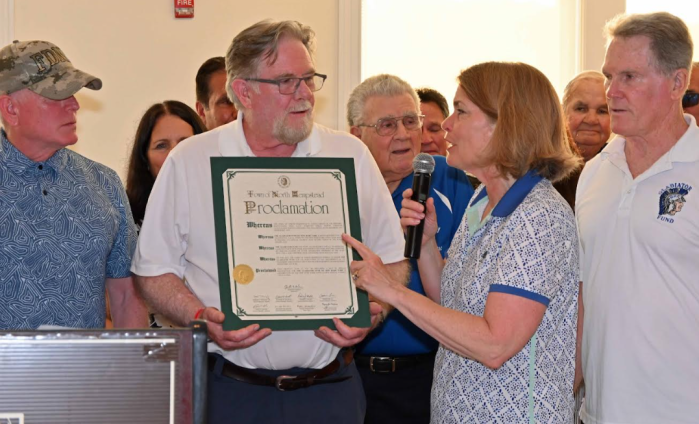
(Photo by Jgosc/CC BY-SA 4.0)
State Comptroller Thomas DiNapoli’s latest audit, “Financial Outlook for the Metropolitan Transportation Authority,” overlooked past history regarding how the MTA ended up in this most recent fiscal crises. Both City Hall and Albany consistently decreased hard cash contributions to the MTA by billions under each previous MTA Five Year Capital Plan,
This included past Governors Mario Cuomo (Democrat), George Pataki (Republican), Elliot Spitzer (D) and David Patterson (D). Governor Andrew Cuomo (D) made a token effort of increasing the states contribution to the past $32 billion 2015-19 MTA Five Year Capital Program.
Billions more are still needed from the state to make up for past cuts over previous decades. Everyone insisted that the MTA continue financing more of the Capital Program by borrowing. As a result, in future years, 23 percent of the annual MTA budget will go for covering debt service payments. Going back six capital programs or 30 years, by the end of this decade, this will continue to grow even higher. This means less money to provide more frequent reliable service to riders. It also means there is less money just to maintain the state of good repair and safety. At the end of the day, the cupboard is bare for system expansion.
MTA union work rules sometimes prevent contracting out work to the private sector. Third party private contractors require New York City Transit subway, Staten Island Railway, Long Island and Metro North Rail Road agency Force Account (their employees) to provide both supervision and protection, when they work on or adjacent to active right of way tracks. There are sometimes excessive numbers of MTA supervisory or employees assigned. The various MTA operating agencies have never been able to control excessive employee overtime. This has grown to more than $1 billion annually.
The MTA has failed to successfully negotiate future union contracts to include more flexible work assignments. Salary increases should match the consumer price index. Employees need to increase contributions toward medical insurance and retirement pensions just as commuters do. Future pensions must be calculated based on the final year’s base salary and not inflated by overtime. Allow employees to remain part time while collecting a portion of their pension. This affords experienced employees time to train replacements and be available during emergencies. Allow unions to bid on projects like the private sector. Offer union employees bonuses, like outside vendors, when completing projects ahead of schedule or under budget. Share these cost savings with union employees.
End both the MTA “Arts in Transit” 1 percent expenditure requirement for many capital projects and Cuomo’s “New York Buy America Act.” Offer businesses, hospitals and colleges who benefit by MTA services naming rights in exchange for adopting a station, paying for “Arts in Transit” and adding elevators to make them ADA compliant. Lobby the Congressional delegation for more reasonable federal Buy America requirements. This impacts the ability of MTA to get the best return on expenditures when spending $1.5 billion in annual grant funding from the Federal Transit Administration.
Stop wasting millions on transportation feasibility studies for future system expansion projects that will never happen. Do not initiate any new system expansion projects, such as the $6.9 billion Second Avenue Subway Phase 2 or $1.5 billion Metro North Bronx East Penn Station Access projects until each operating agency, New York City Transit bus, subway and Staten Island Railway, MTA bus (the old private NYCDOT franchised bus operators equipment, routes and facilities taken over by MTA in 2005), LIRR and MNRR have reached a state of good repair for existing fleet, stations, signals, interlockings, track, power, yards and shops. Ensure that maintenance programs for all operating agencies assets are fully funded and completed on time so that riders have reliable and safe service.
Change is difficult as DiNapoli and other elected officials depend upon transportation union endorsements, campaign contributions, phone banks and volunteers. They will not stand up against their benefactors and support MTA management in instituting reforms during contract negotiations. Riders do not have the stomach to put up with work slowdowns, service disruptions, employee sickouts and strikes by unions who are not going to give up what they have. Without changes, the status quo will continue. Even with three CARE COVID-19 bailouts totaling $14.5 billion, nothing will change the MTA’s ongoing fiscal crises. Without real institutional reform at the MTA, along with reliable hard cash financial contributions from both City Hall and Albany, this story will repeat itself again in coming years. The next annual audit of the MTA by DiNapoli will not tell us anything we did not already know.
Larry Penner—transportation advocate, historian and writer who previously worked for the Federal Transit Administration Region 2 New York Office. This included the development, review, approval and oversight for billions in capital projects and programs for the MTA, NYC Transit, Long Island Rail Road, Metro North Rail Road, MTA Bus along with 30 other transit agencies in NY & NJ.

































